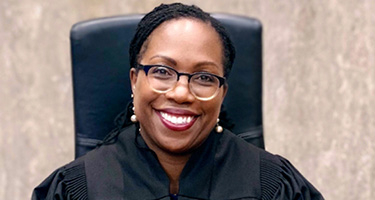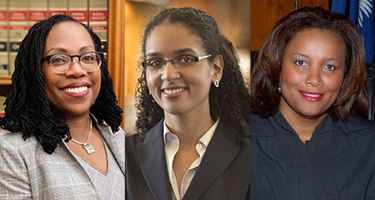On July 8, 2020, the Supreme Court upheld a Trump administration rule in Little Sisters of the Poor v. Pennsylvania, allowing religious and moral exemptions to the Affordable Care Act that required insurers to provide free birth control coverage. This 7-2 decision allows employers to deny women access to contraceptives under their health care plan if they have religious or conscientious objections.
While this was a blow to reproductive rights advocates, the earlier June Medical Services v. Russo, went favorably.
Phillip Greer, CEO of Best Lawyers, moderates a panel of two thought leaders to discuss the significance of these two Supreme Court decisions and the current state of reproductive rights.
Amanda Martinsek
Partner, Ulmer & Berne
Cleveland, OH
Recognized by Best Lawyers in Appellate Practice since the 23rd Edition.
The 2019 Appellate Practice "Lawyer of the Year" in Cleveland.
Amanda is a business litigator with over 25 years of experience managing complex cases including class actions, shareholder derivative claims, product liability suits, and other corporate disputes. She has defended national and regional law firms against professional liability and other business tort claims. Her experience encompasses a variety of commercial disputes involving breach of contract, fraud, tortious interference, covenants not to compete, supplier agreements, and other business issues. She has both prosecuted and defended shareholder derivative and direct shareholder claims and has represented directors and officers against claims brought under federal securities laws and various state laws. Amanda also has experience representing policyholders against their insurers both in active litigation and through negotiation in cases involving a variety of issues such as liability insurance triggered by underlying litigation, conduct or alleged wrongdoing over extended periods, and multiple layers of coverage.
Dariely Rodriguez
Director of the Economic Justice Project, Lawyers' Committee for Civil Rights Under Law
As the director of the Economic Justice Project, Dariely leads the Committee’s efforts to combat discrimination in employment, healthcare (including reproductive services), and economic opportunities on behalf of communities of color, including women and LGBTQ individuals. In this capacity, she serves as plaintiff-side counsel in various impact litigation matters including Long v. SEPTA, a lawsuit challenging the legality of the Transportation Authority’s background check process. She has co-authored or otherwise significantly contributed to amicus briefs before the Supreme Court, including in June Medical Services L.L.C v. Gee, Comcast Corp. v. Nat’l Ass’n of African Am.-Owned Media, Masterpiece Cakeshop, Ltd. V. Colo. Civil Rights Comm’n and Bostock v. Clayton County, Georgia, and other federal courts. Dariely is co-chair of the Employment Task Force of the Leadership Conference on Civil and Human Rights, the national umbrella organization of American civil rights groups.






















